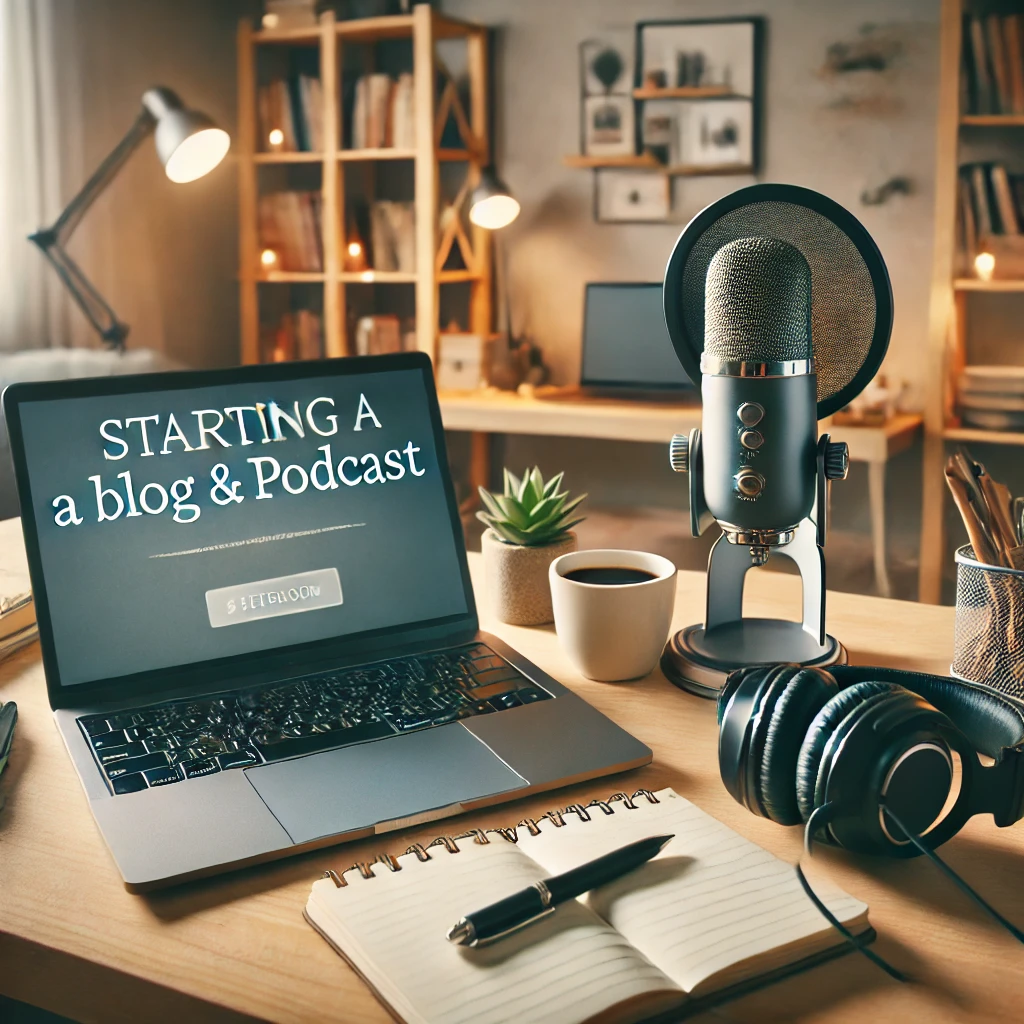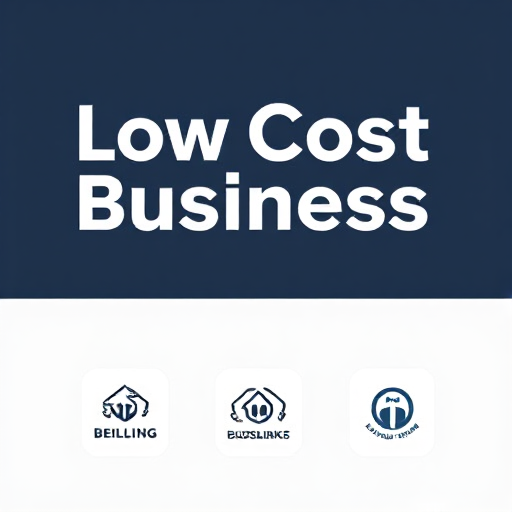Blogging And Podcasting For Beginners: A Complete Guide To Getting Started
In today’s digital landscape, blogging and podcasting have become powerful tools for individuals and businesses to communicate with their audience, build a personal brand, and even generate income. Whether you’re looking to share your expertise, tell stories, or promote a product, both blogging and podcasting offer unique benefits that can help you achieve your goals. If you’re a beginner, diving into both these mediums may seem overwhelming, but with the right approach, you can get started on the path to success.
Find Out How To Make Money As A Full-Time Writer/Blogger Guide
In this article, we’ll walk you through the essentials of blogging and podcasting, from setting up to creating valuable content that resonates with your audience.
What is Blogging?
Blogging involves writing and publishing articles on a website, typically in an informal or conversational style. These posts can cover a wide range of topics, from personal experiences to professional advice. Blogs can be a personal outlet for creativity or a business tool to drive traffic, engage customers, and boost brand awareness.
Why Start a Blog?
- Build an Online Presence: A blog helps establish your digital footprint and gives you a platform to express your ideas.
- Share Expertise: Blogging allows you to share your knowledge, providing value to your audience by solving problems, offering advice, or sharing experiences.
- Monetization Potential: Once you have an established blog with consistent traffic, you can monetize through ads, affiliate marketing, sponsored posts, or selling products/services.
- SEO Benefits: Blogging can improve your website’s SEO. Regularly posting high-quality content helps your site rank higher on search engines, bringing in organic traffic.
Find Out How To Make Money As A Full-Time Writer/Blogger Guide
How to Start a Blog
- Choose Your Niche: Decide on the main topic or industry your blog will cover. It’s essential to choose something you’re passionate about and that has a potential audience.
- Select a Blogging Platform: Platforms like WordPress, Blogger, and Medium are popular choices. WordPress, especially, offers a lot of customization and is great for beginners.
- Pick a Domain Name: Your domain name should reflect your blog’s niche, be easy to remember, and ideally, include a keyword for SEO purposes.
- Set Up Hosting: If you’re using WordPress, you’ll need a hosting provider. Popular options include Bluehost, SiteGround, and HostGator.
- Design Your Blog: Choose a theme that is mobile-friendly and suits your brand. Many platforms offer free and premium templates to customize your blog’s appearance.
- Start Creating Content: Write informative, engaging, and well-structured posts. Don’t forget to optimize your content for SEO, including relevant keywords, internal links, and high-quality images.
What is Podcasting?
Podcasting involves creating and distributing audio or video episodes on the internet. Podcasts are typically released as a series and cover specific topics, ranging from educational content to entertainment. Podcasting is an excellent way to connect with an audience who prefers listening over reading.
How to Earn Money Online – The Ultimate Guide to Financial Freedom!
Why Start a Podcast?
- Engage a New Audience: Podcasting offers a different medium to reach your audience. Some people prefer listening to podcasts while commuting, exercising, or doing household chores.
- Personal Connection: The audio format allows you to establish a more personal connection with your listeners, building trust and loyalty.
- Monetization: Like blogging, podcasts can also be monetized through sponsorships, ads, listener donations, or premium content.
- Expand Your Reach: Podcasts are available on platforms like Apple Podcasts, Spotify, and Google Podcasts, giving you access to a global audience.
How to Start a Podcast
- Choose Your Topic: Focus on a niche or subject you’re passionate about and that will resonate with your target audience. Popular podcast topics include personal development, business, storytelling, news, and interviews.
- Select Your Equipment: You don’t need a studio to get started. A good quality microphone (such as the Blue Yeti or Audio-Technica AT2020) and headphones are a must. Consider investing in pop filters and soundproofing to improve sound quality.
- Pick a Hosting Platform: Podcast hosting platforms like Anchor, Podbean, and Buzzsprout offer easy-to-use services for uploading and distributing your podcast episodes.
- Record Your Episodes: Write an outline or script for your podcast, and record your episodes using editing software like Audacity or Adobe Audition. Focus on clear, engaging delivery.
- Edit Your Podcast: Edit out any mistakes, awkward pauses, or background noise to create a polished final product. Many podcast hosts offer editing tools to simplify the process.
- Publish and Promote: Once your podcast is ready, publish it on popular platforms like Apple Podcasts, Spotify, or Google Podcasts. Promote your episodes on social media, your blog, and through email newsletters to build your audience.
How to Earn Money Online – The Ultimate Guide to Financial Freedom!
Blogging vs. Podcasting: Which is Right for You?
While both blogging and podcasting are excellent content creation channels, they cater to different types of audiences and require different skill sets. Here’s a comparison to help you decide which one might be a better fit for you:
- Content Format: Blogging is text-based, while podcasting is audio-based. If you prefer writing and editing, blogging might be more suited for you. On the other hand, if you enjoy speaking and have a charismatic voice, podcasting could be the better option.
- Time Commitment: Writing blog posts can take time, but once published, they can remain relevant for a long time, driving traffic over time. Podcasting requires regular recording and editing, but it offers a more immediate, conversational connection with listeners.
- Audience Engagement: Podcasting often creates a stronger personal connection through voice, making it ideal for building a loyal, engaged audience. Blogging, while still engaging, relies more on the written word and may not connect with the audience as immediately.
- Monetization Potential: Both blogging and podcasting can be monetized through ads, sponsorships, and affiliate marketing. However, podcasts may require a larger audience before you can attract sponsors, while blogs have more immediate opportunities through ads and affiliate links.
Why Don’t You Have Money?
Combining Blogging and Podcasting
If you’re passionate about both writing and speaking, you don’t have to choose between blogging and podcasting. Many content creators choose to combine both mediums to maximize their reach. For example:
- Repurpose Content: Turn your podcast episodes into blog posts by transcribing the audio or summarizing key points. Similarly, you can create podcast episodes based on topics from your blog.
- Cross-Promotion: Use your blog to promote your podcast and vice versa. Share links, embed podcast episodes in blog posts, or promote your latest blog on your podcast.
- Broaden Your Audience: Blogging helps you reach readers who prefer written content, while podcasting connects you with an audience that prefers listening. This allows you to expand your overall audience and create diverse content.
Tips for Success in Blogging and Podcasting
- Consistency is Key: Whether you’re blogging or podcasting, posting regularly is crucial for building an audience. Set a realistic schedule for content creation and stick to it.
- Engage with Your Audience: Respond to comments on your blog, or read and reply to listener feedback on your podcast. Engaging with your audience builds community and loyalty.
- Quality Over Quantity: Don’t just churn out content for the sake of it. Focus on creating valuable, high-quality content that serves your audience’s needs.
- Promote Your Content: Use social media, email marketing, and SEO techniques to promote your blog posts or podcast episodes to a wider audience.
How to Earn Money Online – The Ultimate Guide to Financial Freedom!
Blogging and podcasting offer fantastic opportunities for anyone looking to create content, build an audience, and potentially make a profit. As a beginner, the key is to start small, focus on producing valuable content, and learn as you go. Whether you choose blogging, podcasting, or a combination of both, you’ll be able to engage your audience in new and exciting ways, establish your voice in your chosen niche, and grow your digital presence.







